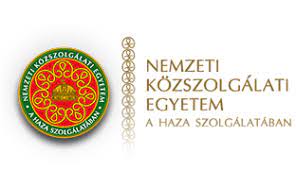|
If you are having trouble viewing this email, open it with your internet browser,
download the PDF version
or contact us.
|
 |
| #41 - January 2022 |
| PDF version - Manage your subscription - Search - Archives |

|
|
vision RH is a newsletter published by the French Directorate General for Administration and the Civil Service (DGAFP). It draws on information sources and reports issued by public administrations, the private sector, international organisations and the press, in several different languages. It aims to provide a broad view of current human resources and civil service initiatives.
|
|

|

|
| Reach a positive management through better employee recognition | |||||
|
Very close attention should be paid to employee recognition as it is central to effective management and has an inescapable influence on the motivation and commitment of both individuals and teams (1). This essential way of valuing staff may take different forms and government departments are now starting to pick up on this. English-speaking countries have a longstanding tradition of awarding prizes in the civil service. The idea is to showcase civil servants who have made a significant commitment when carrying out their duties. These distinctions are part of continuous improvement programmes, examples of which include “A Brilliant Civil Service” in the United Kingdom, “Be Recognised for Your Achievements” in Ireland or the “Federal Employee Awards” in the United States. Giving financial compensation (salary increases, additional allowances or one-off bonuses) or access to promotion remain the means most often used by HR departments. However, today, free time is being increasingly solicited, especially by younger staff. In Luxembourg, when an employee receives a maximum score in the performance appraisal system, they are granted three days of “recognition” leave for the period. This leave can be broken down into half days or put into a time savings account. Along the same lines in terms of job appeal, performance rated as excellent over three years in a row by superiors in Portugal opens up entitlement to choose a move to a foreign government department or to an international or non-governmental organisation, or skills-development training. As remote working is becoming ever more widespread, the need for recognition is all the more pressing. Norway provides managers with a best practices guide and tailored advisory services to improve the positive feedback they give their staff and make sure they do so on regular basis, against the growing backdrop of the almost exclusive use of digital resources. Some countries, such as Switzerland, go beyond mere recommendations and make giving recognition a prerequisite for any supervisory position. The ability to “show employees appreciation for their work and behaviour” is assessed in appraisals. Dialogue has to be adapted to reflect the diversity of civil servants’ situations, whether in terms of age, working conditions or profession. In Finland, the government is trialling Osaava:ksi (succes factors), a digital resource which uses the concept of ongoing discussions on targets and achievements by providing a ready-to-use channel that fosters regular interaction. Recognition should also be seen as a full-blown psychosocial factor as it has an impact on the loyalty and engagement of staff. In Canada, the School of Public Service trains counsellors in each organisation and has designed a tool that draws attention to focal points, which include always getting the employee’s consent before congratulating them during an event or in front of a group of people. Recognition given in a more confidential and less formal manner can be just as effective. In Australia, the government has set up the eThanks system to enable employees to thank a colleague, who will receive a printable, personalised acknowledgement of their efforts.
|
|||||
|
|||||
|
|
|||||

|
|||||

|

|

|
| Italy: new classification for government staff | |||||
|
Central government jobs in Italy now fall into four categories: operatives, assistants, civil servants (senior supervisors) and high-level experts. The new model includes criteria for flexible responsibilities which better match the requirements of the organisations. It should also facilitate HR management by providing staff with an agile and motivating career path. |
|||||
|
|||||
|
|
|||||

|
|||||
| United Kingdom: campaign to appeal to young adult carers | |||||
|
Increasing numbers of young jobseekers are also carers. To show them that their circumstances are fully compatible with public employment, the British civil service is conducting a campaign in which it highlights its two star measures: the carers’ charter, which is mandatory in all establishments, and the carers’ passport issued to each new employee enabling them to retain, in the long term, the adapted working conditions to which they are entitled. |
|||||
|
|||||
|
|
|||||

|
|||||
| Europe: Tech for Government, presentation of innovative solutions | |||||
|
As part of the French Presidency of the Council of the European Union which has just started, 13 countries have pitched their innovative solutions for governments’ digital transition to a panel of European experts. Seven of them were chosen on the basis of their reproducibility, in particular, and will be presented during the European Public Administration Network (EUPAN) meeting on 17 March in Strasbourg. « While our governments face the same challenges, let's pool our energies and make sure not to solve the same problem 27 times »
|
|||||
|
|||||
|
|
|||||

|
|||||

|

|
| Germany: study into ways of retaining government employees | |||||
|
The German “Public Sector Retention Barometer”, which provides an overview of job appeal, has just been published. It shows that 80% of civil servants have considered changing departments or positions, and almost a third would be prepared to move to the private sector. In order of importance, the four reasons mentioned are better pay, greater flexibility, better equipment, and recognition and appreciation. |
|||||
|
|||||
|
|
|||||

|
|||||
| France: CLIP, the first public innovation training course | |||||
|
The aim of the training course introduced by the French Interministerial Directorate for Government Transformation (DITP) is to support the development of public innovation laboratories through sharing of expertise and testimonies from stakeholders. The idea is to apply reusable methods and resources to enable teams to better grasp the issues and carry forward their ideas to come up with an operational response and plan for its rollout. |
|||||
|
|||||
|
|
|||||

|
|||||
| Finland: skills development and guidance programme | |||||
|
HAUS, the Finnish Institute of Public Management, offers tailor-made coaching in response to new requirements that have emerged during the COIVD-19 pandemic. It is designed for people who act as mentors and who support colleagues with determining and acquiring skills during the first year after taking up a position. The scheme should improve integration and foster commitment. « Mentoring is an excellent method because it acts as a means of tacit knowledge transfer and a confidence factor »
|
|||||
|
|||||
|
|
|||||

|
|||||

|

|
| Belgium: Symphonie, a new assessment system | |||||
|
It was decided to change the appraisal procedure for Belgian civil servants. With the focus now on permanent dialogue, the annual interview process has been streamlined. The idea behind this new approach is to create effective cooperation on a limited number of objectives via constant feedback which is incorporated into daily operations. In addition, the link with compensation is set to be eliminated. |
|||||
|
|||||
|
|
|||||

|
|||||
| Estonia: a competency model for top managers | |||||
|
A set of six requirements is becoming the common bedrock for Estonian top management: boldly shape the future, drive innovation in an inspiring way, create value for teams, keep staff happy at work, always be developing and achieve excellent results. The expected level of effectiveness for each of these responsibilities is determined and assessed throughout managers’ careers. |
|||||
|
|||||
|
|
|||||

|
|||||
| Austria: creation of a new generation civil service school | |||||
|
To supplement the incumbent training agencies (federal, ministerial and regional academies), the Austrian School of Government will be set up in 2023. It will be a tech-based and agile structure, and will coordinate the training given to civil servants and make recommendations for developing content and methods by forging partnerships with academic and scientific stakeholders. « The school will set, in cooperation with universities and research institutes, common training and development standards »
|
|||||
|
|||||
|
|
|||||

|
|||||

|

|
| Spain: increased teleworking in specific circumstances | |||||
|
Whilst the new Spanish agreement on teleworking provides for up to three days of telework per week in normal circumstances, two specific conditions enabling the proportion to be raised to as much as 90% of work time were added to the Decree. Civil servants whose duties are compatible with remote working and who live in sparsely populated areas are entitled to these arrangements, and they can also be offered to applicants when there are established hiring difficulties. |
|||||
|
|||||
|
|
|||||

|
|||||
| France: guide to collective bargaining in the central government civil service | |||||
|
Implementing collective bargaining is now a reality in France, and a guide has been published to help social dialogue stakeholders to calmly pave the way for it. The guide addresses the practical questions that these stakeholders may have, in particular issues covered by the Order, the permitted participants, the legal effects of the clauses in an agreement, and how agreements can be amended, suspended or terminated. |
|||||
|
|||||
|
|
|||||

|
|||||
| Netherlands: “Mentally Fit & Healthy and Hybrid Work” toolkit | |||||
|
A toolkit, which provides all relevant information on an interactive knowledge platform, has been introduced following strong demand from Dutch civil servants who are still experiencing difficulties in adjusting psychologically to a changing work environment. An initial diagnosis can be established by taking one of the several self-evaluations which are available. Counsellors who are trained in professional risk prevention can be contacted and offer tailored follow-up. « In order to prevent dropping out at work, the social desk stay by your side to think together and bring you a solution. »
|
|||||
|
|||||
|
|
|||||

|
|||||

|

|
| Alstom has opted for unity to ensure high levels of integrity | |||||
|
Integrity and the public sector are often mentioned in the same breath and, although private-sector businesses operate in a commercial and competitive environment, they also have to comply with rules to stamp out corruption. The French multinational Alstom, which specialises in rail transport, has introduced an Integrity Programme to foster a culture of integrity covering all aspects of responsible business conduct. An independent Ethics & Compliance (E&C) team maps risks by drawing on an analysis of group activities. It pinpoints the relevant initiatives to implement, including: • drawing up a code and instructions to govern relations with partners, suppliers and subcontractors, as well as providing guidance and strict rules in-house • training with face-to-face sessions and e-learning programmes to explain and raise awareness of the E&C policy • coordinating a community of E&C Ambassadors, all volunteers and coming mainly from the Legal, Finance and HR functions, who serve as the points of contact for any questions about E&C A straightforward and accessible procedure has been rolled out to facilitate whistleblowing with strong commitments to protect whistleblowers. Alstom is now ISO 37001-certified (1); this is one of the most demanding international standards.
|
|||||
|
|||||
|
|
|||||

|
|||||

|

|
| Using mentorship for career development in the Hungarian civil service | |||||
|
In many countries, government departments are faced with a falling interest in public employment. For the generations starting out on their careers, their experiences during the first years are decisive. In 2017, the Hungarian government observed that 15% of new recruits resigned within a year. With an eye to reversing this trend, it conducted a wide-ranging survey of staff, the vast majority of whom mentioned a lack of support, which is crucial for integration. A task force(1) was assigned to draft methodology for implementing mentorship in the civil service as one of the components of a new HR strategy. .
Drawing on local initiatives, best practices from abroad and national programmes for the integration of recent graduates, the designers chose a global approach that addresses different issues: • Helping with the “socialisation” of staff discovering an organisational environment in which they are not necessarily familiar with the conventions and rules • Pinpointing critical positions for which experience can only be relayed through a trust-based relationship forged by regular discussions over a given period of time Three modules (preparation, integration and assessment) provide a formal framework for the steps and involvement of the relevant players. For instance, HR departments act in tandem with mentors to tackle career development issues and managers may be asked to specify or adjust the skills required for the position. Initially 45 candidates were chosen to kick-start pilot programmes in offices that volunteered and were representative of the civil service. There are now 300 and, with the agreement of their superiors, they have taken a training course given by NKE Ludovika, the country’s public service university. Two factors have contributed to the scheme’s consolidation and success: the support of management teams and its inclusion in the individual appraisal process. There are now plans to extend it to staff returning after a long absence (illness, extended leave of absence or parental leave).
|
|||||
|
|||||
|
|
|||||

|
|||||

|
|
Share
|
||||
|
||||
| SUBSCRIBE - UPDATE YOUR SUBSCRIPTION - ARCHIVES - RSS - UNSUBSCRIBE |
|
French Directorate-General for Administration and the Civil Service (DGAFP)
Publication Manager: Nathalie COLIN Managing Editor: Nathalie GREEN Editor-in-chief and Autor: Jean-François ADRIAN Layout and graphic design: Jean-François ADRIAN and Aphania. The texts of the publication do not reflect the point of view of the DGAFP
In accordance to the French Act n°78-17 of 6 January 1978 on information technology, data files and civil liberties and to the european General Data Protection Regulation (GDPR), your personal data is stored securely and you are entitled to access, correct and delete them. To do so, you should send an e-mail to (contact-visionrh@kiosque.bercy.gouv.fr) or write to DGAFP: 139, rue de Bercy - 75012 Paris; France.
The links to a machine translation are accessible with the only Chrome browser Reproduction is authorized with mention of the source © DGAFP 2022 / N° ISSN: 2606-7528. |
|
|





